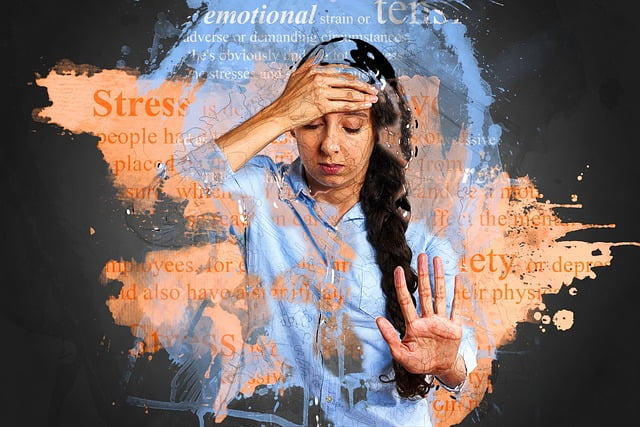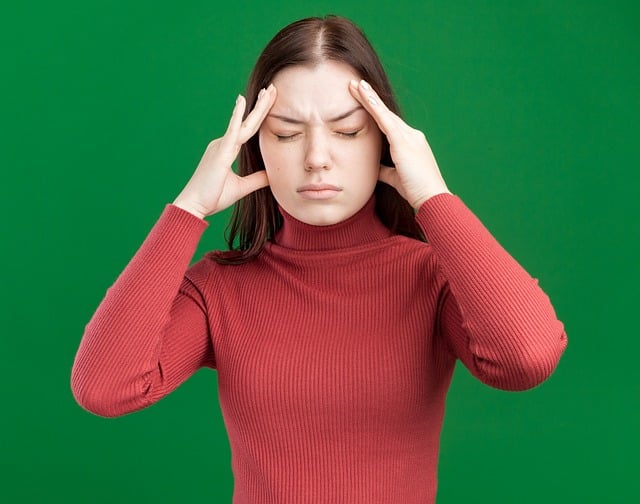What is stress?
The sensation of being oveTrburdened or incapable of handling mental or emotional strain is known as stress. It may have negative effects on the mind and body.
Most individuals struggle with stress at some time in their lives. Actually, according to a 2015 research, 59% of individuals said they felt stressed out a lot.

Symptoms of stress
Reduced vitality and sleeplessness
Long-term stress can lead to sleep disturbances and chronic weariness, both of which can lower energy levels.
For instance, a recent study involving almost 7,000 working individuals discovered a “significant association” between exhaustion and stress at work.
Low energy might result from insomnia brought on by stress, which can also disturb sleep.
“Stress-related worry and rumination” can cause disturbed sleep, which in turn increases the likelihood of developing insomnia, according to a 2018 review that was published in the Journal of Sleep Research.
A different study with 2,316 individuals linked stress exposure to a higher incidence of sleeplessness.
These two studies concentrate on sleep reactivity, or how much stress impacts one’s capacity to fall or stay asleep.
Although it is obvious that stress can interfere with sleep, not everyone who is under stress or going through a difficult period will suffer from insomnia or other sleep disorders.
Changes in libido
Stressful times often cause alterations in many people’s sex urges.
In a brief research study, researchers assessed the stress levels of thirty women and then examined their sexual arousal after they watched an erotic movie. Sexual arousal was lower in people with high chronic stress levels than in people with lower stress levels.
In a far more recent research on the effects of the COVID-19 pandemic on women’s reproductive health, which was released in 2021, 45% of the more than 1,000 women asked said that stress had decreased their libido.
Apart from stress, there are several other possible reasons for alterations in libido, such as:
- hormone modifications
- weariness
- mental health problems
Depression
Some research suggests that chronic stress may be linked to depression and depressive episodes.
A study including 816 women diagnosed with serious depression discovered a substantial correlation between acute and chronic stress and the onset of depression.
Another study linked high levels of stress to the onset of severe depression in teenagers.
Furthermore, a 2018 study emphasised the link between experiencing persistent or unavoidable stress and depression.
In addition to stress, the following factors may also contribute to depression:
- familial background
- ages
- environmental elements
- even specific drugs and ailments

Physical effects on the body
Skin
Several studies have linked higher stress levels to an increase in acne flare-ups
This might be due, in part, to the fact that some people touch their faces more frequently when they are under stress. This has the potential to disperse bacteria and exacerbate acne.
Acne may be linked to increased levels of stress, according to many research studies.
In one tiny study, 22 university students’ acne severity was examined both before and after a test. Severe acne developed around test times when stress levels rose.
A second study including ninety-four teens discovered that worse acne was linked to increased stress levels, especially in males.
These studies demonstrate a correlation without taking into consideration any confounding variables. The relationship between stress and acne requires more investigation.
Apart from stress, there are additional possible reasons for acne, such as:
- inflammation
- hormone changes
- bacteria
- excess oil production
- blocked pores
Migraines

Numerous studies have revealed that headaches, a disorder marked by discomfort in the head, face, or neck, can be exacerbated by stress.
Increased stress intensity was linked to an increase in the number of headache days experienced each month, according to a 2015 research.
In a different research, 172 military personnel visiting a headache clinic were polled. It was shown that 67% of them said that stress was the second most prevalent cause of headaches.
Stress has also been linked to tension headaches, according to a smaller 2020 research.
A poor diet, alcohol intake, hormone fluctuations, sleep deprivation, and other factors can also be major headache inducers.
Recurring illness
Stress might be the reason for persistent illness or the feeling that you’re always getting sick.
Your immune system may be negatively impacted by stress. Research indicates that elevated stress levels are linked to heightened vulnerability to infections.
In one trial, the flu shot was administered to 116 senior citizens. Chronic stress was observed to impair vaccine-induced immune response in recipients, suggesting a possible link between stress and reduced immunity.
Likewise, an examination of 27 research revealed a connection between stress and a higher risk of contracting an upper respiratory infection.
Psychological stress may have an impact on a number of physiological processes, including inflammatory responses, wound healing, and the body’s capacity to fend against infection and disease, according to a chapter in the 2019 book “The Impact of Everyday Stress on the Immune System and Health”.
But in terms of immunological function, stress is but one component of the picture. A compromised immune system may also come from:
- reduced nutrient intake
- drug abuse
- lack of exercise
- immune system illnesses, including AIDS
Rapid heart rate
Numerous studies have demonstrated that excessive amounts of stress can result in a rapid pulse or heart rate. Additionally, stressful situations or activities may raise the heart rate.
A similar research conducted in 2001 discovered that giving 87 students a stressful task increased their blood pressure and pulse rate. It’s interesting to note that listening to calming music while performing the activity helps avoid these alterations.
The American Heart Association states that going through a stressful situation can make your body produce the hormone adrenaline, which momentarily raises blood pressure and causes your heart to beat more quickly. This is one of the reasons why having high levels of stress can cause a fast heartbeat.
Sweating

According to a study, excessive perspiration may also result from stress exposure.
Twenty individuals with palmar hyperhidrosis, a disorder marked by excessive hand sweating, were the subjects of a brief research. A scale ranging from 0 to 10 was used in the study to gauge how much they sweated over the day.
Stress raised the rate of sweating in both the palmar hyperhidrosis group and the control group by two to five points.
According to different research, forty youths who were under stress had excessive perspiration and body odour.
A 2013 review of “psychological sweating” states that this kind of sweat usually appears on the cheeks, palms, soles of the feet, and underarms and that it happens in reaction to stress and worry.
